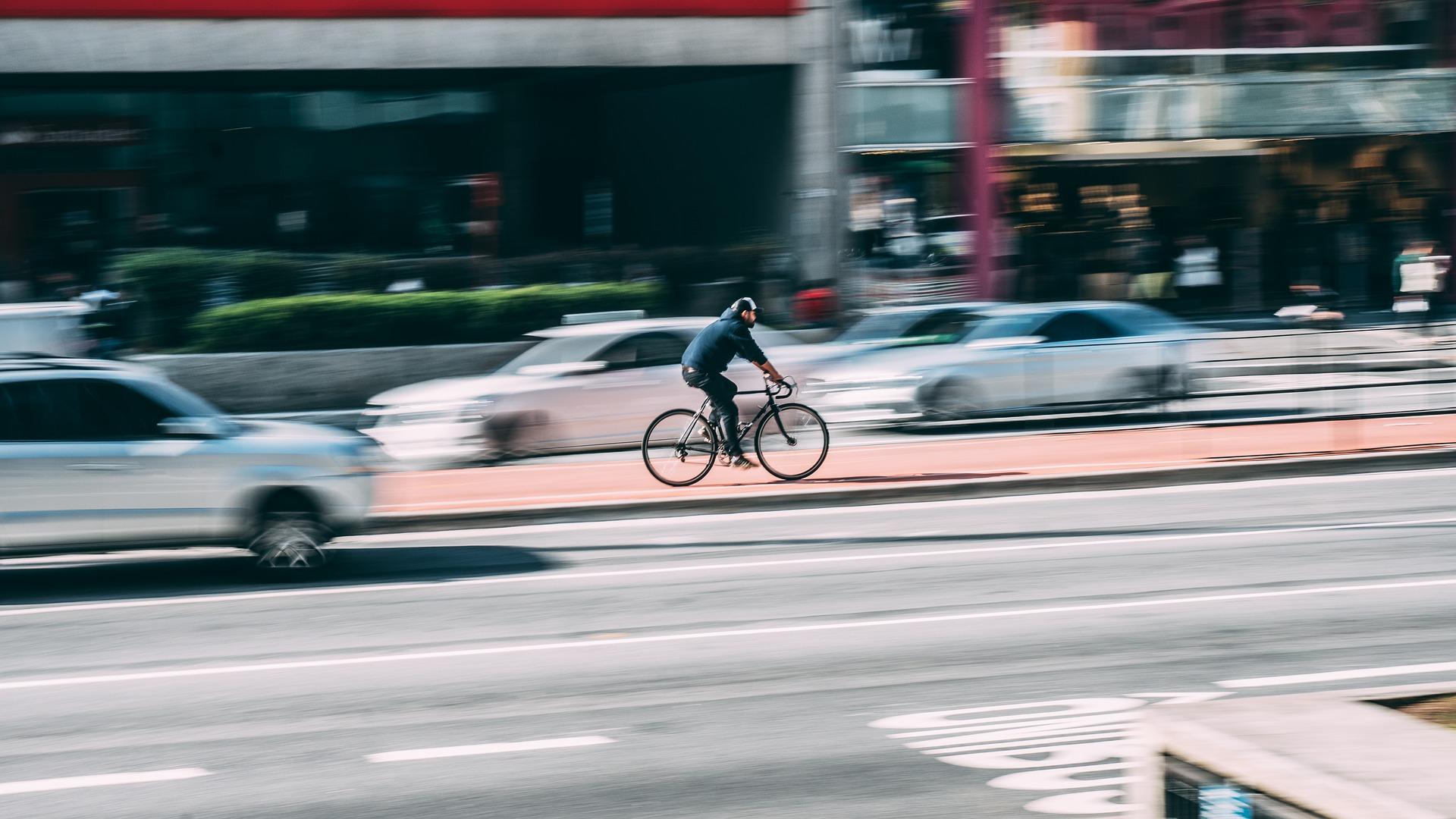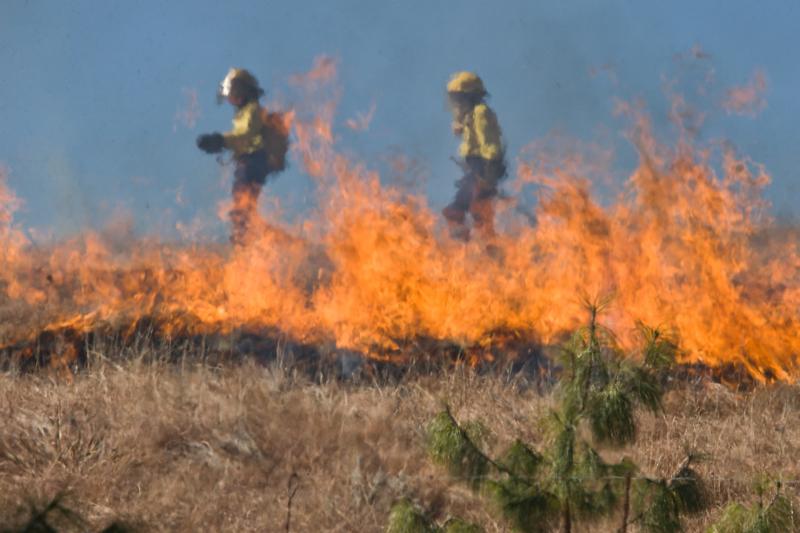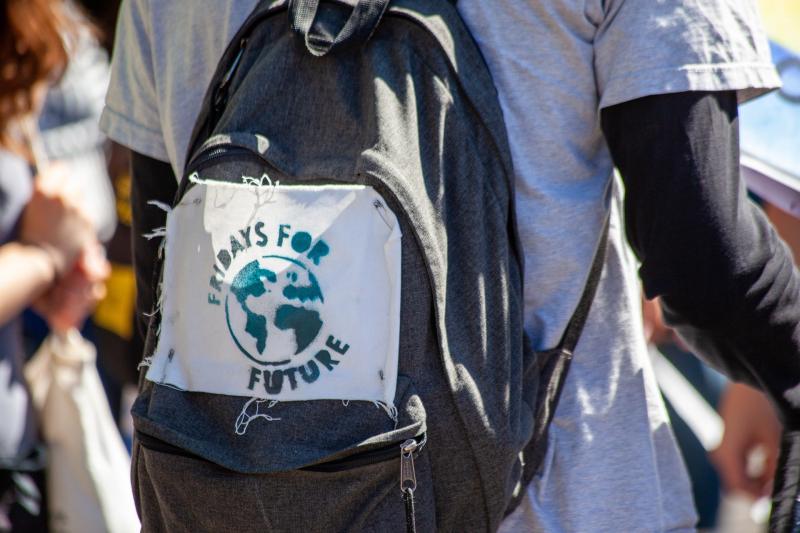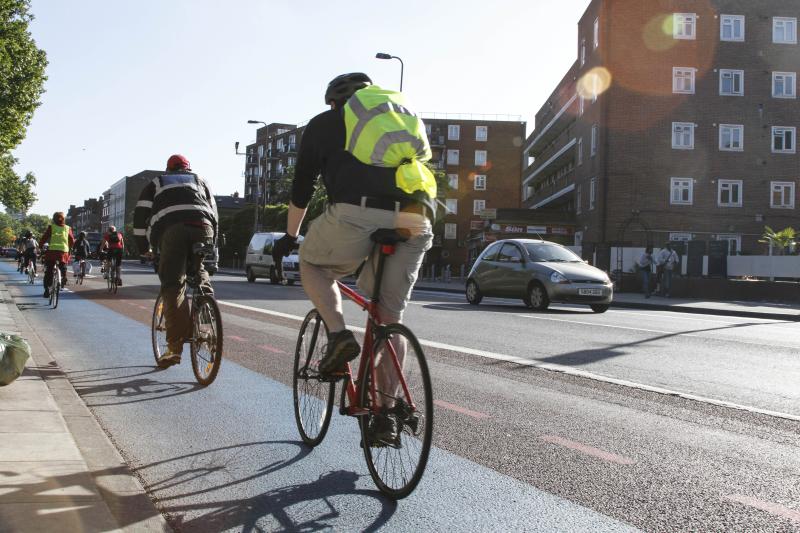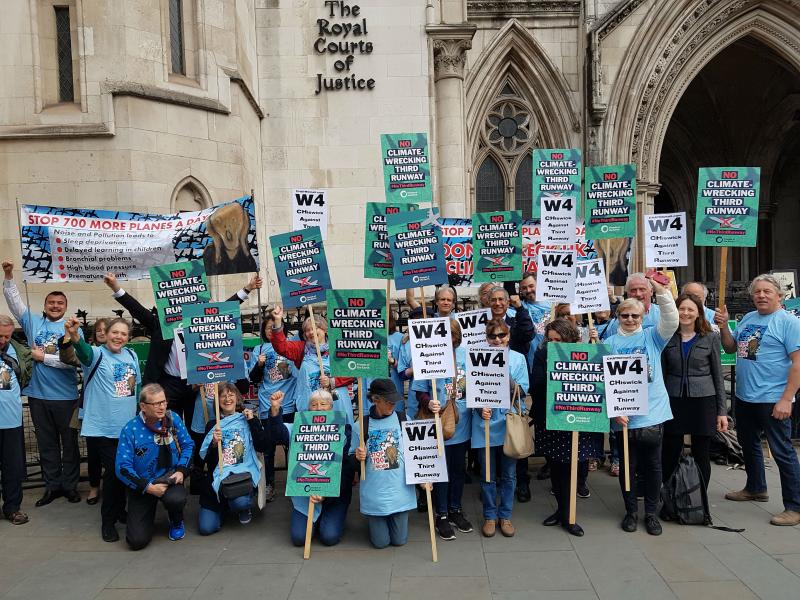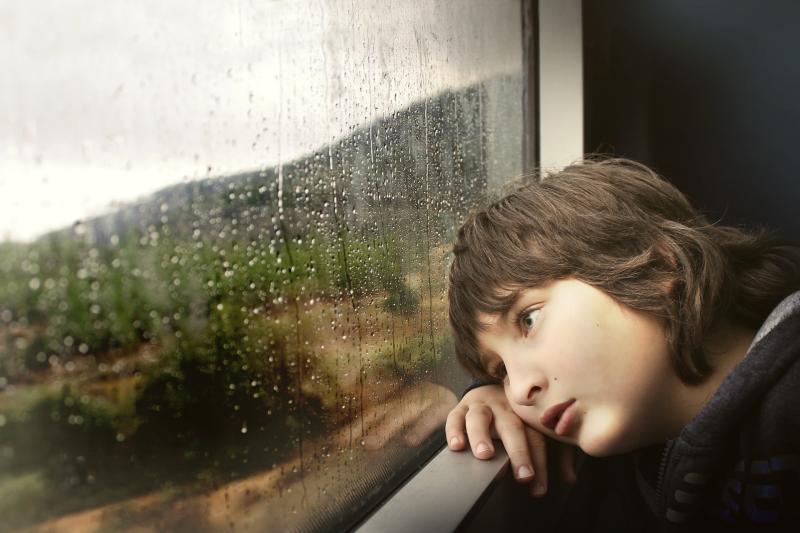Clare Oxborrow02 Mar 2020
Recent research shows that more people than ever are concerned about climate change. But we’re still stuck on the small things when it comes to adapting our lifestyles. Does this matter? Why should organisations focused on changing political and economic systems to meet the climate emergency also advocate for changes in behaviour?
Recent polling by YouGov has found that three quarters of UK respondents described themselves as concerned about climate change and that concern spans political and demographic spectrums. This tallies with global public opinion, which shows a large majority of citizens around the world now accept the science of climate change. Partly this is because there is more visible proof that it’s happening – the frequency of climate-related extreme weather events is difficult to miss, from the devastating fires in Australia and floods in Indonesia, to more extreme weather on our doorstep.
Eco-anxiety is rising
Over the last year, Extinction Rebellion and the school strikes have massively raised the profile of the climate and ecological emergencies. XR in particular has highlighted the terrifying impacts on us all of climate breakdown.
But shouting emergency only takes us so far. Levels of eco-anxiety are rising, but this isn’t leading to marked changes in behaviour. This presents a huge challenge for NGOs as messengers and advocates. Some of us either view campaigning for behaviour change as a waste of time when deeper political action is required, while others are concerned about frightening people into inaction when research shows that scaring people is disempowering. So how do we confront this dissonance?
Lifestyle change and political action shouldn’t be polarised
We need both radical lifestyle change and political action for systemic change, and we need to better understand how the two integrate and reinforce one another. How far do you need to engage people in doing something tangible in their own lives, before engaging them in helping to achieve the kind of root-and-branch system change needed to address the climate emergency?
It is encouraging to note that when people change their own behaviour, they can both directly affect the changes they want to see and send signals to politicians about their willingness to accept system change. For example, ‘flight-shaming’ in Sweden has seen a 4% drop in the number of passengers flying through Swedish airports in 2019. Over 22,500 people have taken the pledge to travel flight-free in 2020.
This will not only directly reduce emissions, but also put pressure on the government to stop giving the aviation an easy ride on climate change. It is also likely to make the individuals concerned powerful advocates for change because psychologically we seek alignment between what we do and what we say. In other words, behaviour change can be a route into becoming an advocate for system change.
Recycling is important – but we need to do much more
In the UK, when it comes to personal behaviour, our collective response is lukewarm at best. New research from Behaviour Change, delving into how green behaviours have changed over the last 10 years, found that people are still “frantically paddling in the shallows”, keeping very busy with recycling, but not doing much more. YouGov findings are similar – “recycling is now a near ubiquitous British habit” with most people saying they recycle most of the time.
This is good news. Friends of the Earth was launched on the back of a returnable bottles stunt in 1972 and led the campaign to get doorstep recycling to every household in the UK in 2003. The more recent revelation of the plastic pollution catastrophe affecting marine wildlife, highlighted by Blue Planet 2, demands an urgent response.
But deeper engagement with recycling can make people feel they're doing more than they really are. And we’re not going to be able to recycle our way out of the climate (or even the plastics) crisis.
YouGov concluded that “a typical Brit these days is an environmentally concerned recycler, who takes their own bag to the supermarket, but also likes their meat and balks at the thought of paying more tax to fund policies for talking (sic) climate change.”
Radical change is coming
The climate emergency demands that we decarbonise our lifestyles almost completely within the next decade. The UK government has committed to net zero emissions (albeit too slowly), and radical change is coming, but people are completely unprepared.
The risk is a rapid and painful shift, when a fair and just transition should start now.
Our homes need to switch away from gas heating to eco-options, like heat pumps. We’ll need to eat a lot less meat and dairy and take more trains rather than flying. Instead of hopping in the car to get to work, or the kids to school, we’ll be using public transport, cycling and walking, and for those car journeys that are unavoidable, electric vehicles will replace petrol and diesel ones.
The Behaviour Change research highlighted that people have little idea about these changes.
Every Little Helps is not enough
It’s not their fault – successive government campaigns have encouraged an “every little helps” approach: take little actions, turn lights off, switch to energy-efficient light bulbs. NGOs have also played a role. During the recycling campaign, Friends of the Earth’s demand was that recycling should be “as easy as taking the rubbish out”. Absolutely. Except that now people are stuck in a recycling cul-de-sac, without even realising there’s a long road out there they need to be on.
We know from research that people are happy to make changes that are convenient. But now we must all step it up.
Communicating a positive vision
Firstly, organisations need a new narrative. We need to be talking to our supporters and the public about the scale of change needed, honestly.
This can be a positive story, as pioneering work by Ashden on co-benefits – how to cut carbon while improving lives – has shown. Whether it’s cleaner air, kids eating healthier food or safer, more connected communities, framing this positive vision is a critical first step.
Behaviour Change’s work indicated that once people were shown what needed to change, there was a sense of relief in seeing a bigger plan – that someone knows how to get us out of this crisis.
Cities like Paris are leading the way, with an ambitious Climate Action Plan that also aims to transform the city into one that is “fairer and more inclusive”, with active transport, sustainable food, low-carbon buildings, zero waste, and 100% renewable energy.
Friends of the Earth’s own focus group discussions with young people revealed a need for better, more creatively expressed information that would help them visualise the changes needed and share it with their peers.
The government must lead by example
Secondly, the government needs to up its game. A report for the Committee on Climate Change on behaviour change and net zero set out the challenge.
Peoples’ ability to make the changes needed for a net-zero future are fundamentally dependent on the government shaping the right environment. For example, how can people take the train instead of flying when it’s vastly more expensive? We need a frequent flier levy to redress the balance and investment in lower train fares, as well as ensuring services are reliable and comfortable.
And the government needs to lead by example. Research confirms that people despise hypocrisy. Why should they fly less if the government is gung-ho for airport expansion?
This dissonance between ministers on the one hand declaring a climate emergency, and on the other supporting polluting, climate-trashing policies and infrastructure projects is a major barrier. People need to see the government taking the lead.
People can do more in their own lives - but need help
Thirdly, integrated into campaigning for these systemic changes, we need to inspire people to get involved. We can do this by demonstrating practically what they can do now that’s commensurate with the climate emergency challenge and will move us towards a green future.
Our focus group research found that people want to do more in their own lives, but need the tools to help steer them in the right direction. And they want to know what the impact of these changes is, individually and collectively. As a starter, Friends of the Earth has looked at what behaviours are most impactful in meeting the climate challenge.
And research has found that taking radical personal action, like giving up flying, can have a wider knock-on impact on others, changing what’s viewed as normal. Deeper conversations with people found that “…the bold and unusual position to give up flying had conveyed the seriousness of climate change and flying’s contribution to it; crystallised the link between values and actions; and even reduced feelings of isolation that flying less was a valid and sensible response to climate change.”
And this in turn will help put the pressure on national governments. When people are prepared to change, are better equipped to do so, and understand the barriers and limits to their individual actions, they’re more likely to demand action of government and create a mandate for political change.
Why now?
We have an unprecedented opportunity. The heightened concern and awareness over the climate emergency have created the space to introduce concrete actions and steps forward – for individuals, communities and policy-makers.
The key challenge is how do we create a positive and mutually reinforcing relationship between lifestyle change and system change?
People need to know there’s a way out of this crisis, what part they can play and that the vision of a carbon-free future can be an exciting and inspiring one.
[1] https://slate.com/technology/2018/10/carbon-footprint-climate-change-personal-action-collective-action.html


